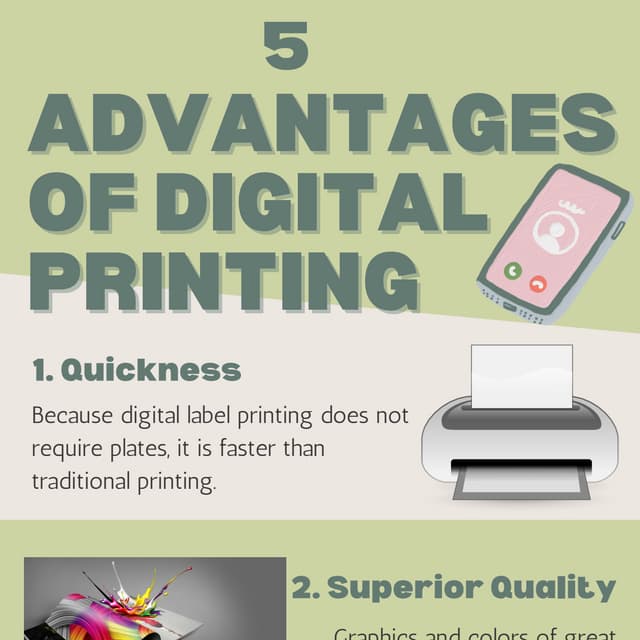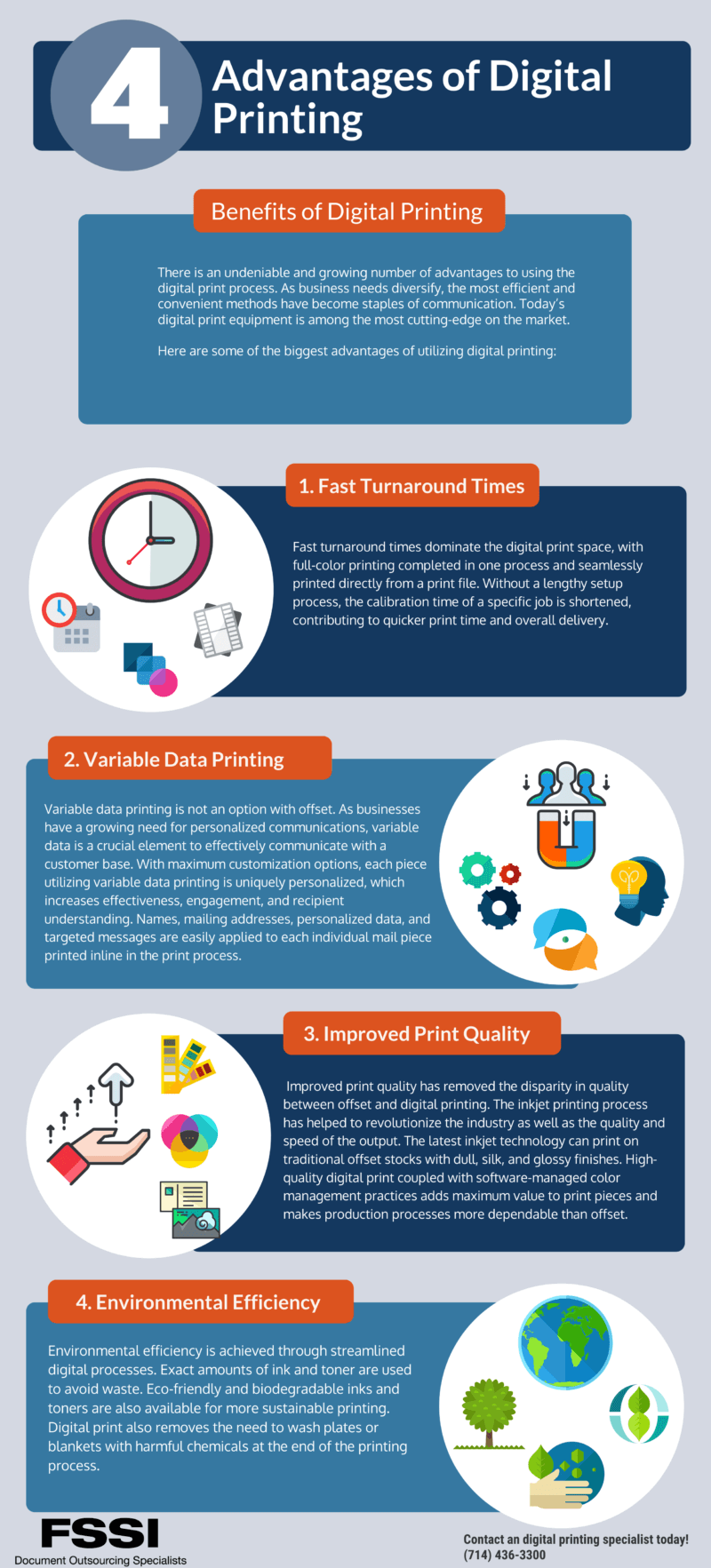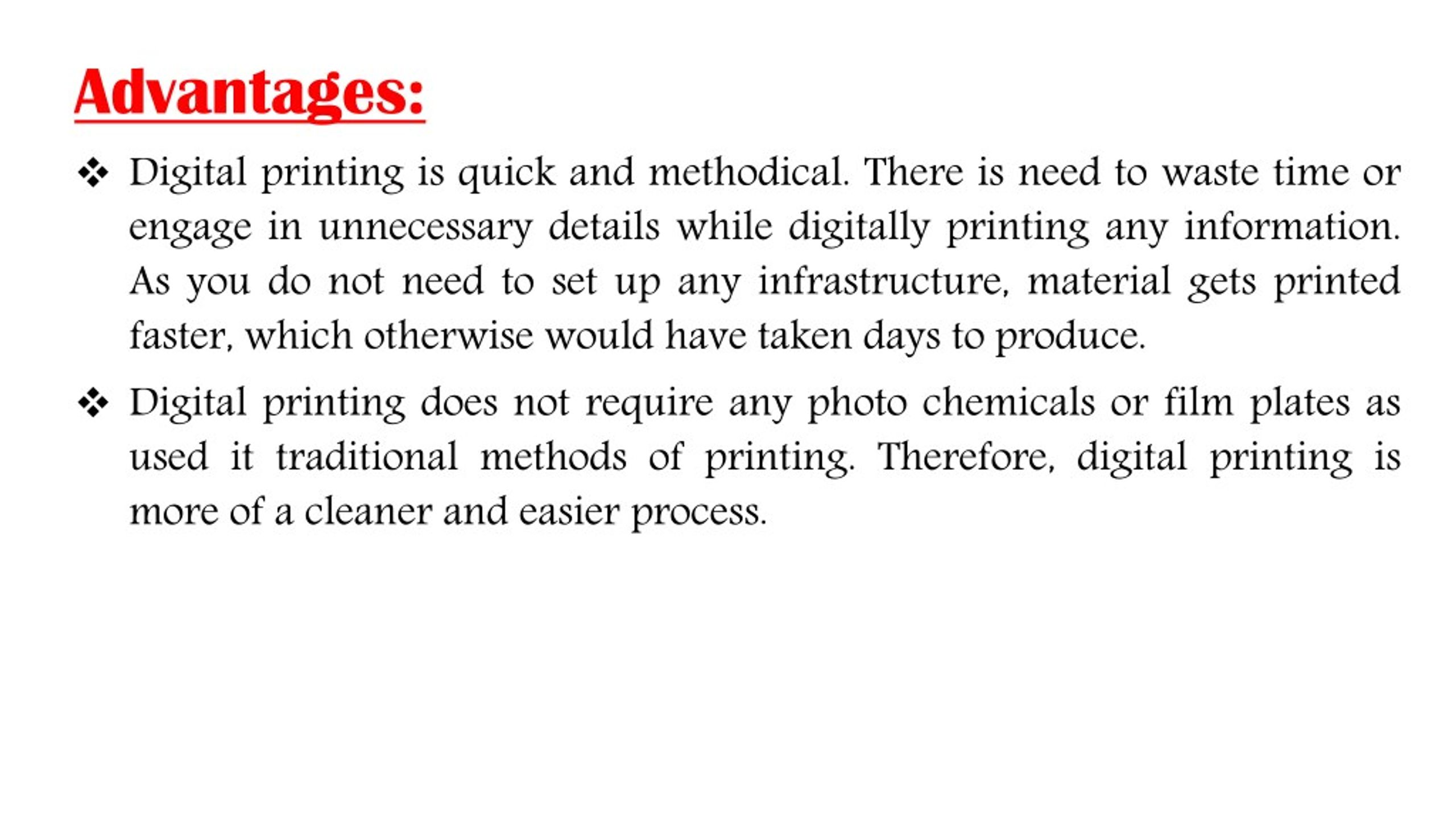The 7-Minute Rule for Digital Printing
The 7-Minute Rule for Digital Printing
Blog Article
Get This Report on Digital Printing
Table of ContentsExamine This Report about Digital PrintingSome Known Details About Digital Printing The Best Guide To Digital PrintingNot known Incorrect Statements About Digital Printing The Buzz on Digital PrintingSome Ideas on Digital Printing You Should Know
Variable information printing, such as straight mail with personalized codes and addresses, is preferably suited for electronic printing. Digital fast printing only requires four actions of layout, evaluation, printing and binding to obtain everything done. Digital quick printing has an unparalleled benefit: print on demand.According to PMMI, electronic printing permits brands and producers to respond swiftly to customer needs while enhancing the supply chain, lowering warehousing price and waste, and delighting in faster time to market. That all noises terrific, but how does this innovation do all that? The major differentiator of these innovations is that there are no set up charges and no plates with electronic printing.
Getting The Digital Printing To Work
This results in quicker turnaround time and decreases expense when using electronic printing.
Fast production suggests obtaining your product to market much faster. It likewise means it's easier and faster to make adjustments in the future, when you transform a dish, add a SKU, or create seasonal product packaging. Digital printing is highly adaptable, so it's easy to make adjustments to the plan design rapidly. Everything goes back to home plates.
With traditional printing approaches, short-run printing is simply not possible. Because a great style can make or damage your product, digital printing continually produces high-quality, clear and colorful graphics each time.
Digital printing is the process of printing digital-based pictures straight onto a selection of media substratums. There is no need for a printing plate, unlike with offset printing. Digital data such as PDFs or desktop computer posting files can be sent directly to the digital printing press to print theoretically, picture paper, canvas, material, synthetics, cardstock and other substratums.
The 10-Second Trick For Digital Printing
According to PMMI, electronic printing enables brands and producers to respond quickly to consumer demands while enhancing the supply chain, minimizing warehousing expense and waste, and taking pleasure in faster time to market. That all noises excellent, however exactly how does this technology do all that? The major differentiator of these technologies is that there are no set-up costs and no plates with electronic printing.
According to Wikipedia, the best difference in between electronic printing and conventional techniques such as lithography, flexography, gravure, or letterpress is that there is no requirement to replace printing plates in electronic printing, whereas in these analog printing Extra resources techniques the plates are repeatedly changed. This leads to quicker turnaround time and decreases price when making use of digital printing.

The Only Guide for Digital Printing
Much more supply can imply even more waste later on. With standard printing techniques, short-run printing is simply not possible. Due to the fact that a wonderful design can make or damage your product, digital printing constantly produces premium, clear and colorful graphics each time. Digital printing on flexible bags adds the brilliant, vibrant, and specific graphics that almost beckon consumers to get to out and touch them.

According to PMMI, electronic printing permits brands and suppliers to respond swiftly to consumer demands while enhancing the supply chain, reducing warehousing expense and waste, and delighting in faster time to market. That all audios excellent, but exactly how does this modern technology do all that? The major differentiator of these innovations is that there are no set up costs and no plates with digital printing.
Our Digital Printing Ideas
According to Wikipedia, the best difference in between electronic printing and traditional techniques such as lithography, flexography, gravure, or letterpress is that there is no need to change printing plates in Website digital printing, whereas in these analog printing approaches the plates are repetitively changed. This causes quicker turn-around time and reduces expense when using digital printing.
Rapid manufacturing means getting your item to market much faster. It additionally suggests it's simpler and faster to make modifications later on, when you transform a recipe, add a SKU, or create seasonal packaging. Digital printing is highly adaptable, so it's very easy to make modifications to the package design promptly. Everything returns to the plates.

Some Ideas on Digital Printing You Should Know
Digital printing is the procedure of printing digital-based photos directly onto a selection of media substrates. There is no requirement for a printing plate, unlike with offset printing. Digital documents such as PDFs or desktop posting files can be sent directly to the digital printing machine to publish on paper, picture paper, canvas, fabric, synthetics, cardstock and other substrates.
Report this page